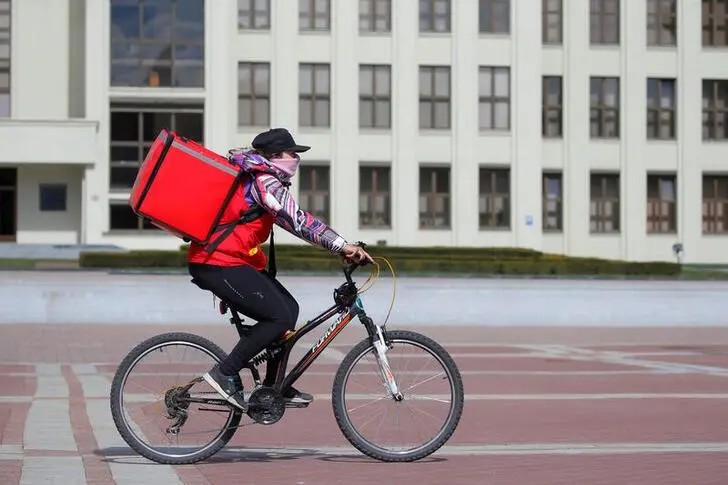PHOTO
(The author is a Reuters Breakingviews columnist. The opinions expressed are her own.)
MUMBAI - Food delivery companies have been a godsend to well-heeled Indians stuck at home during the lockdown without their usual coterie of helpers to cook meals. And yet Zomato’s $1.1 billion initial public offering is arriving lukewarm.
The unprofitable company is charging higher commissions, delivery fees and other charges while trimming discounts for the 10.7 million customers that use its service on average each month. That has become easier to do since it gobbled up the Indian operations of Uber Eats, leaving Uber Technologies with a 9% stake. The company co-founded by Deepinder Goyal claims about half the market opposite Swiggy.
Unlike many international peers, however, Zomato didn’t get a big pandemic boost. While it logged its highest-ever orders in terms of gross value in the quarter ending Dec. 31, a period when life had practically returned to normal, the figure grew just 7% from a year earlier. By contrast, SoftBank-backed DoorDash tripled revenue in the nine months to September from the same span in 2019.
India’s virus resurgence promises another troubled year. Ordering takeout remains something of a luxury and many consumers are watching what they spend, knowing government handouts probably aren’t coming to cushion any blow to wages.
Meanwhile, cheaper restaurants appear to be shutting faster than pricey ones, whose diners are more financially insulated. That has increased the power bigger established brands hold over aggregators, and some are switching to services that allow eateries to take their business online without commissions. The venture capital arm of online classifieds company Info Edge, a 19% owner of Zomato, has invested in one, DotPe. Affiliates of embattled financial technology giant Ant own 17% and are likely sellers over time given India’s raised barriers to Chinese investment.
Zomato was valued at $5.4 billion in its February fundraising, more than a third higher than two months earlier, according to media reports. That’s roughly 15 times pre-pandemic sales for the year to March 2020, and even higher when extrapolating from the most recent nine months of results through March 2021. DoorDash trades on 12 times its trailing top line while China’s Meituan fetches 11 times. On that basis, it’ll take considerable time for Zomato to deliver.
CONTEXT NEWS
- Indian food delivery company Zomato on April 28 filed a draft prospectus to raise $1.1 billion through an initial public offering.
- Unprofitable Zomato operates in 526 cities, with an average of 10.7 million customers using its service every month in the year to March 2021. The company’s paid-membership program, Zomato Pro, had 1.4 million members at the end of December.
- Mumbai-listed Info Edge owns almost 19% of the company. Affiliates of Ant, Alipay and Antfin together own 16.5%. Uber owns about 9%, following Zomato’s acquisition of the Indian operation of Uber Eats in 2020. Co-founder Deepinder Goyal owns about 5.6%.
(The author is a Reuters Breakingviews columnist. The opinions expressed are her own.)
(SIGN UP FOR BREAKINGVIEWS EMAIL ALERTS http://bit.ly/BVsubscribe | Editing by Jeffrey Goldfarb and Sharon Lam) ((una.galani@thomsonreuters.com; Reuters Messaging: una.galani.thomsonreuters.com@reuters.net))





















